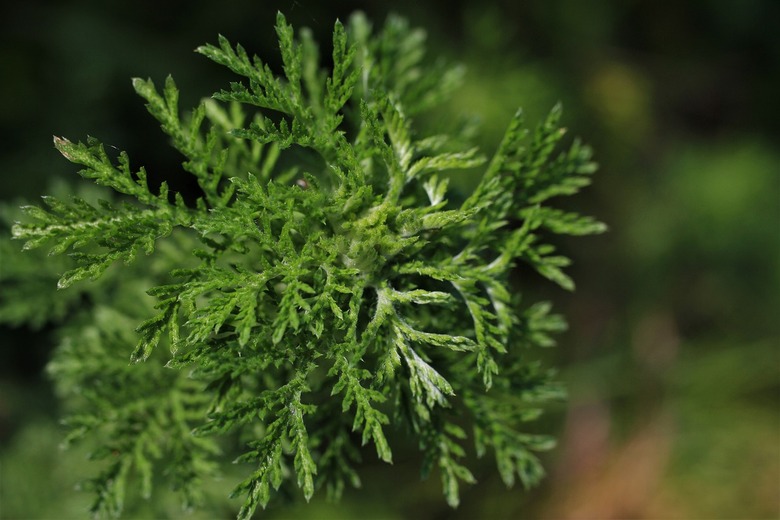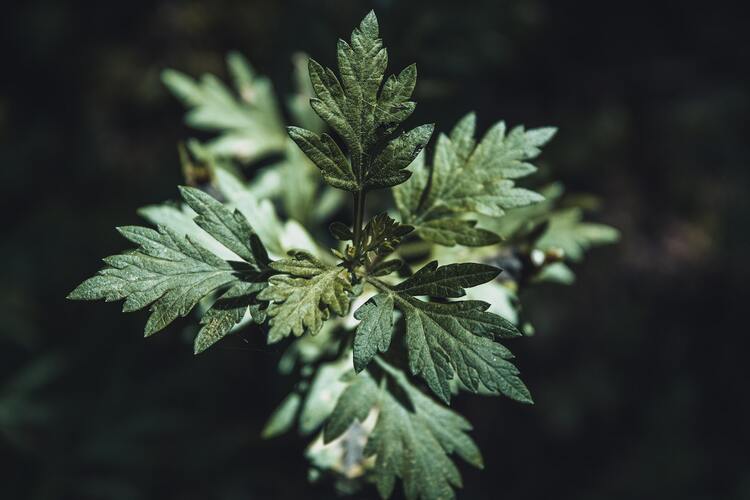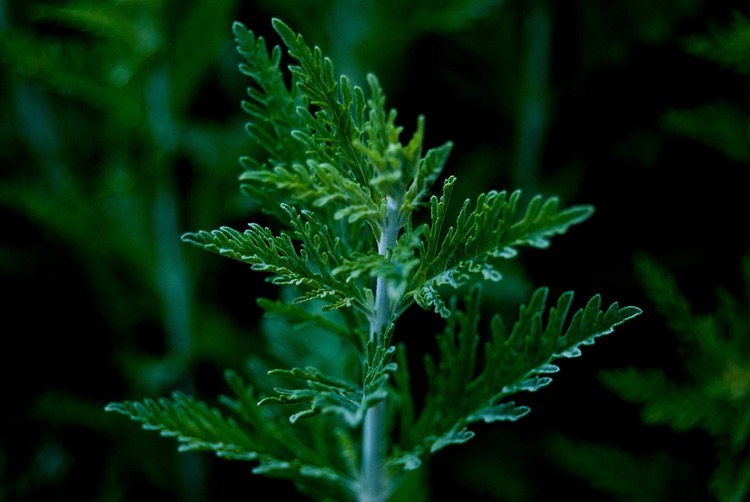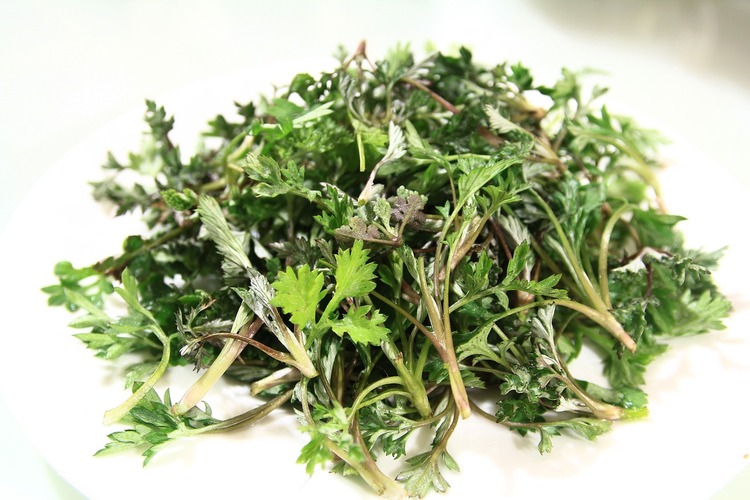What does mugwort tea taste like?
The taste of mugwort tea can be described as slightly woody, with a subtle aroma reminiscent of sage or thyme. Some people also detect a slight bitterness or astringency in the tea, which can be balanced with a touch of honey or other sweeteners.
If you’re interested in trying mugwort tea for yourself, it’s important to note that the taste can vary depending on the quality of the tea and how it’s prepared. Some prefer to steep the leaves shorter to avoid bitterness, while others enjoy a stronger brew.
If you want to add mugwort tea to your tea collection, keep reading since we provide tons of info.
Please note: This article contains affiliate links, meaning I may earn a commission if you make a purchase by clicking a link. Of course, this comes at no extra cost to you and helps me keep offering readers solid information.

What is Mugwort Tea?
Mugwort is an herb native to Europe, Asia, and North America that belongs to the daisy family and has been used in traditional medicine for centuries. The tea is made by steeping dried mugwort leaves in hot water.
In culinary applications, mugwort leaves have been used as a flavoring agent in certain dishes and beverages. The leaves have been used as a flavoring agent in rice dishes, soups, and stews. Fresh mugwort leaves can be used in salads or as a garnish. Mugwort is also a key ingredient in traditional herbal drinks like absinthe and some types of bitters.
Additionally, mugwort has ceremonial significance in some cultures. It has been used in rituals, smudging ceremonies, and as a symbol of protection and purification in certain spiritual practices.
Mugwort is often confused with wormwood, another species in the same genus (Artemisia). Although closely related and share similar properties, they are distinct plants with different characteristics. And, yes, this plant is mentioned in the Harry Potter books.
What Does Mugwort Tea Taste Like?
Mugwort tea is often described as having a strong, herbal, and slightly bitter flavor profile. The bitterness can vary depending on the preparation and steeping time.
Some people compare the taste of mugwort tea to a combination of sage, thyme, and chamomile. It has earthy undertones and a subtle sweetness, although bitterness tends to be the dominant characteristic. The aroma of mugwort tea is also quite distinctive, with herbal and slightly floral notes.
Remember that taste preferences can vary from person to person, so while some may enjoy the flavor of mugwort tea, others may find it too strong.
If you’re trying mugwort tea for the first time (or are thinking about trying it), I recommend starting with a small amount. Try different steeping times and/or add sweeteners (honey, maple syrup, or stevia) to counter the bitterness. Another option is to consume the tea in a blend (more info below).

How to Prepare Mugwort Tea?
Preparing mugwort tea is a simple process you can easily do at home. Here’s how to do it:
- Start by gathering your ingredients. You’ll need dried mugwort leaves, water, and a sweetener (optional). Leaves are sold in loose leaf or bag (individual portions) form.
- Measure two teaspoons of dried mugwort leaves and place them into a tea strainer or infuser.
- Boil 8 ounces of water and pour it over the mugwort leaves in the strainer or infuser. Let it steep for 5-10 minutes.
- Remove the strainer or infuser and add sweetener if desired.
- Enjoy your mugwort tea by sipping it slowly while it’s still warm.
It’s important to note that the quality of your mugwort leaves can affect the taste and potency of your tea. Look for high-quality, organic mugwort leaves for the best results.
Mugwort Tea Variations or Blends
If you’re looking for a new twist on your mugwort tea, you’re in luck! There are many variations that you can try to suit your taste preferences. Here are a few popular options:
- Mugwort and Mint Tea: Add a few fresh mint leaves to your tea to give it a refreshing and cooling flavor. The mint will also help balance out the mugwort’s slightly bitter taste.
- Mugwort and Lemon Tea: Squeeze a wedge of fresh lemon into your mugwort tea for a bright and tangy flavor. The lemon will also help to enhance the natural sweetness of the mugwort.
- Mugwort and Honey Tea: Drizzle a spoonful of honey into your mugwort tea for a sweet and soothing taste. The honey will also help to counteract the bitterness of the mugwort.
- Mugwort and Ginger Tea: Add a few slices of fresh ginger to your mugwort tea for a spicy and warming flavor. The ginger will also help to aid digestion and boost your immune system.
- Mugwort and Cinnamon Tea: Sprinkle a pinch of cinnamon into your mugwort tea for a cozy and comforting taste. The cinnamon will also help to regulate blood sugar levels and reduce inflammation.
Experiment with different combinations of ingredients to find the perfect mugwort tea variation for you. Don’t be afraid to get creative and try something new!

Health Benefits
Mugwort tea has been used for centuries in traditional medicine to treat various health conditions. Here are some of the potential health benefits associated with this tea:
- Digestive Health: Mugwort tea is known to have a soothing effect on the digestive system. It can help alleviate digestive issues such as bloating, constipation, and stomach cramps. Additionally, it may stimulate the production of digestive enzymes, which can improve digestion.
- Relaxation: Mugwort tea has a calming effect on the body and mind. It can help reduce anxiety, stress, and promote relaxation. Drinking this tea before bed may also help improve the quality of your sleep.
- Menstrual Health: Mugwort tea has been traditionally used to regulate menstrual cycles and alleviate symptoms of PMS. It may also help reduce menstrual cramps and heavy bleeding.
- Antioxidant Properties: Mugwort tea is rich in antioxidants, which can help protect the body against damage caused by free radicals. Antioxidants can also help reduce inflammation and prevent chronic diseases such as cancer, heart disease, and Alzheimer’s.
- Immune System Support: Mugwort tea may help boost the immune system and improve overall health. It contains essential vitamins and minerals such as vitamin C, vitamin E, and iron, which can help strengthen the immune system.
As with herbal tea, it is always best to consult a healthcare professional before adding mugwort tea to your diet.

Top Recommendations
When it comes to mugwort tea, there are a lot of different products to choose from (believe it or not). Here are our top recommendations (which were not easy to down-select).
MiralandBerry Dried Mugwort Leaves

FullChea – Mugwort Tea Bag 40 Teabags

Buddha Teas Organic Mugwort Tea

Lucid Dreamz Herbal Blend – Mugwort, Jasmine, Peppermint

I hope you have enjoyed the article and learned something new. Let me know if you have tried this tea before.
To you, what does mugwort tea taste Like?
More About Herbal Tea
What Does Peppermint Tea Taste Like?
What Does Mint Tea Taste Like?
What Does Ginger Tea Taste Like?
What Does Lemon Balm Tea Taste Like?
What Does Chamomile Tea Taste Like?
What Does Lavender Tea Taste Like?